brand
THE MAKING OF A CSR MASTERSTROKE: AN X-RAY OF FIRSTBANK’S YEOMAN EFFORT TO MOVE ONE MILLION CHILDREN TO E-LEARNING
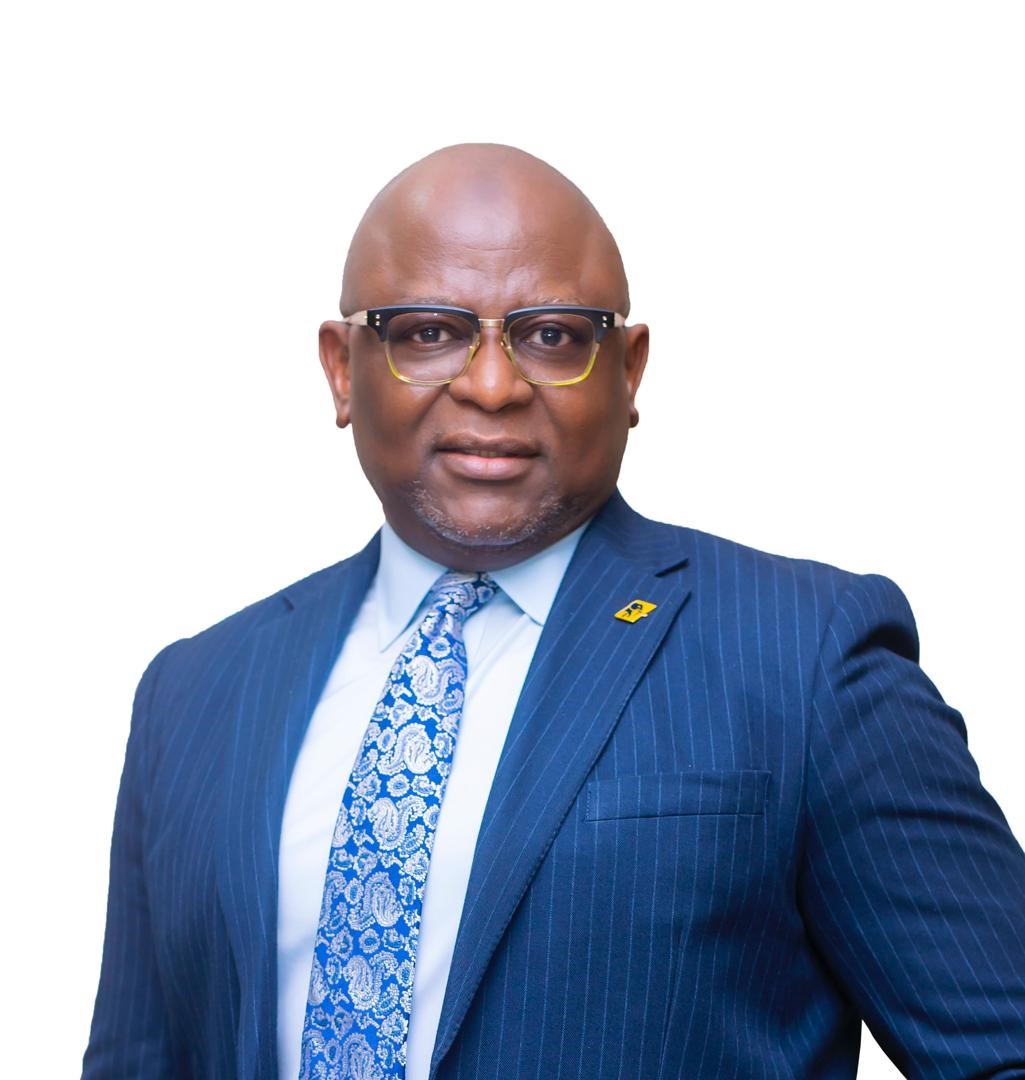
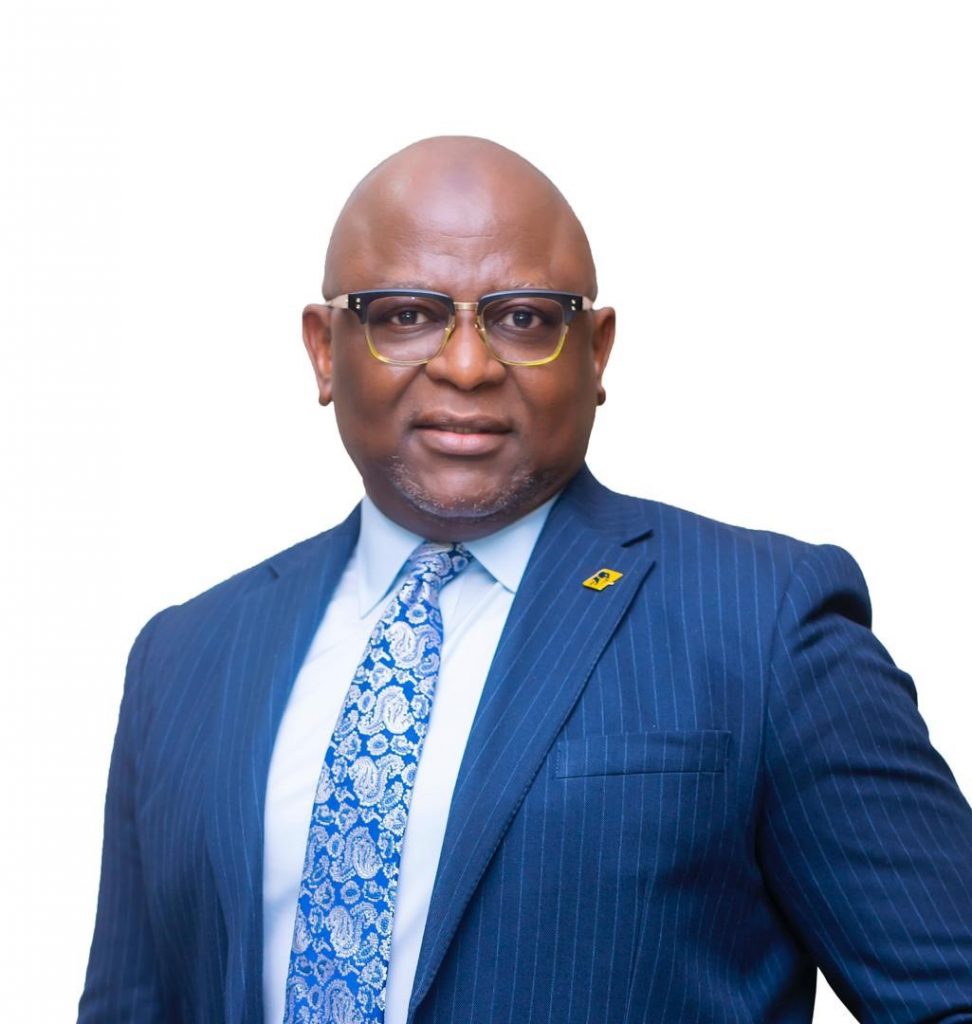 The rabbit hole of uncertainty, confusion and fear that pupils and their parents fell into in the dying days of March when the country was in lockdown was best captured in a Saturday Sun feature of May 16, titled, “COVID-19: Troubles of e-Learning.”
The rabbit hole of uncertainty, confusion and fear that pupils and their parents fell into in the dying days of March when the country was in lockdown was best captured in a Saturday Sun feature of May 16, titled, “COVID-19: Troubles of e-Learning.”
The story catalogues the challenges that erupted out of the disruption caused by the coronavirus pandemic, the fears and frustrations brewed by the new abnormality foisted on the world, the pessimism that pervaded the globe from developed to underdeveloped countries and the possibilities that blew up in the aftermath in the education stratosphere.
With the new order of social distancing, self-isolation, government-enforced quarantine and the ubiquitous lockdown, the prospect of indefinite stay at home until at least an elusive vaccine is found, loomed. This precipitated a distress as never seen before in the education space.
Yet, a panacea was at hand: Digital learning, though hitherto given scant attention. But crossing into that nirvana was an uphill task, especially, in this part of the world. Why: The existence of a huge digital deficit both in infrastructure and the requisite skill.
The dilemma confronting parents, pupils and tutors are multi-dimensional as illustrated by these three vignettes from the story:
Oko Odinakachi, a student of Abia State University, faced frustration on two fronts: her institutions dillydallying about adopting the e-learning strategy on the one hand; her little faith in digital learning, on the other hand. “I was on the verge of writing my first-semester examination. How possible can we do that digitally when there are issues with even JAMB CBT here in our country?”
A father whose daughter, a student of Federal Government College Shagamu preparing for her Senior School Certificate Exam, was compelled to seek a suitable e-learning portal because WAEC advised students to be studious during the lockdown as they’d be going straight into the exam hall at short notice as soon as the pandemic is over. The search led him to an online WAEC Preparatory Class that demanded payment for requisite online resources. “One subject is N1, 500, four subjects N4, 500 and six subjects cost at N6, 500. I didn’t go further because of the fee, which I think is exorbitant, given the current state of the country,” he complained. He joined the rank of other parents who raised concerns over exploitation by mercenaries masquerading as e-learning groups.
Abolade Kunle, a JSS3 student was aware of the government-sponsored tutorial on the radio but he was unable to enjoy the benefits: “We don’t have a radio set in the house. I use my dad’s phone once in a while but he doesn’t allow me to use it all the time,” he railed. A related drawback was cited by one of his teachers at the public school in Mushin: “In the past five weeks, we have had barely three days of electricity supply. It is not every parent that can afford a generator. Is it not when you have electricity supply that the children can watch [government educational programme on] the television?”
The absence of curative or prophylactic breakthrough against the virus meant that academic activities would remain in limbo, while pupils and their parents are faced with the undaunted possibility of a long spell at home. The prospect of a long lull of academic inactivity struck a palpable fear that fueled the scramble unto digital learning platforms as educationists and institutions across the country experimented with remote learning, albeit on a trial-and-error basis. The efforts were at best tangled; the process muddled; the result ineffective. Even, for students of tertiary institutions, the online class was to many a Lala-land.
With the option inevitably narrowed down to digital learning, a Catch-22 situation evolved. Who’s going to make it happen? How? When?
Best foot forward
Eventually, the first foot forward––and indeed the best one––came and it was from First Bank of Nigeria Limited.
The bank, a leading financial inclusion services provider, announced its intention to roll out an innovative e-learning initiative on the heels of its philanthropic contribution of the sum of one billion naira to the Coalition Against COVID-19 (CACOVID), a private-sector task force that partners the Federal Government, the Nigeria Centre for Disease Control (NCDC) and the World Health Organisation (WHO) to combat the coronavirus in Nigeria.
In the months to come, the bank’s effort would resonate forcefully in the education space. The reason for this was not farfetched. Since responsiveness remains a cornerstone of Corporate Social Responsibility, when it is timely, it becomes a major coup. The severity of the pandemic required “uncomfortable, transformative responsiveness,” not the usual CSR response where organisations choose and design responsiveness on their own terms, described by Wayne Visser in Evolution and Revolution of Corporate Social Responsibility, as “when giving is easy and cheque-writing does nothing to upset their commercial applecart.”
Taking on the e-learning challenge head-on was an self-assigned project for which the bank was not under any compulsion to undertake. That it volunteered to tackle the challenge is an indication of the largeness of its CSR aorta.
Suffice to say that a handful of digital learning initiatives exist before the advent of the Covid-19 lockdown; the First Bank effort, however, resonates louder because it has a measurable stated goal: Moving one million pupils into e-learning platform.
A response apt and adequate
Lagos State’s prompt response to the pandemic included the immediate shutdown of schools. By March 25 (four days before Lagos State went into total lockdown on the order of the President), the First Bank initiative was rolled out, and it inalienably took the optics of “the” response to the glitch caused to the education system by the coronavirus pandemic.
First Bank went into collaboration with Lagos State Government and an indigenous mobile learning platform, Robert and John Limited, whose trademark Roducate e-solution, a comprehensive curriculum-based education, is a cornucopia for a broad spectrum of students.
Having powered similar projects in the past, Robert and John was an obvious best in the e-learning business, a fact reinforced by First Bank CEO, Adesola Adeduntan: “In searching for the best fit solution, several options were considered by educators and teachers from the state and First Bank over the last couple of weeks before adjudging Roducate the offering from Robert and John, an innovative technology firm, to be the best of all reviewed.”
Is Roducate the Rosette stone of online learning? The facts were in its favour. Its claim of being the “most comprehensive e-learning platform in Nigeria and indeed Africa” is justified on its curriculum-based education for primary, secondary, and tertiary students. Moreover, ;it has been active in the e-learning space as far back as 2014 and has perfected the mechanics of effective digital learning, winning endorsements along the way from NUC, NERDC, JAMB and Lagos State Ministry of Education.
And by tweaking its blueprint, it came up with an e-learning mother lode––lecture notes, assignments, mock exams, videos, podcasts, and educational games––a rich vein of contents for primary, secondary and tertiary institutions, structured in consonance with the government-accredited curriculum. From the interactive tutorial videos to the innovative feature that enables the learner to take notes for quick reference, it was a whole new experience and an enjoyable learning process.
Suffice to reiterate that the First Bank/LASG Roducate is not the first of its kind; before it, there was Glo Mobile Tutor (since 2014) and UBA LEARN (unveiled in 2018) amongst others. However, certain factors gave it an edge.
The comparative advantage
The CSR takeaways from the initiative are writ large in what makes it different from others––in other words, its comparative advantages.
On the first count, the effort surfaced at a time of need, a time when there was an urgent need to close the gap caused by the disruption in children education due to schools closure following the Covid-19 lockdown. In one fell swoop, a solution materialised that provided succour for all, from kindergartens kids to grad-year students of tertiary institutions.
Secondly, while it is indeed a rolling scheme, it nevertheless came with specific number goal of one million pupils to be empowered with digital learning; this calibrated objective makes the intervention easy to evaluate, compared to other similar initiatives.
Thirdly, the biggest boon: subscription-free.
Consider what this means to parents such as the one cited in Sun story who had to shell out approximately N6, 000 for his daughter to access the needed resources. With the First Bank initiative, students simply get on the platform by registering free at https://www.firstbanknigeria.com/e-learning/.
And then the masterstroke: the enhanced offline feature of the initiative. It means students can study offline without having to bear the burden of buying data. What’s more, First Bank gave further impetus by providing 20, 000 devices that came preloaded with the curriculum.
Elaborating on the low-end devices preloaded with Roducate offline content, Adeduntan disclosed that “the phones have SIMs and limited data tied, only, to the Roducate learning product.”
Kayode Abayomi, the spokesperson for Lagos State Ministry of Education, further hit the nail on the head.
“The devices are efficient and fit for purposes for all students especially indigent students given the fact that data consumption of most e-learning solutions has been a major stumbling block for the majority of students and teachers alike,” he said.
Its fourth edge is from its collaborative nature. One of First Bank’s collaborators on the project is a partner with leverage in the education space: the Lagos State Government. That made a big difference, as it gave the initiative authority and legitimacy that immediately gained traction.
In return, the initiative was well-appreciated by Lagos State Governor Sanwo-Olu: “It is not out of place that we are witnessing more infusion of technology in learning and this intervention by First Bank could not have come at a better time.”
Lastly, the First Bank e-learning project took care of both the short-term and the long-term interest of Nigeria in the digital race. Beyond the exigency of the moment, which was to get the children into learning mode, the intervention took on the imperative of helping young Nigerians develop relevant skills in emerging technologies, thereby enhancing their competitiveness in the interconnected world of today.
How? Via two other initiatives, both partnerships with IBM (that schooled youths in coding Artificial Intelligence, cloud, internet of things, blockchain, data science, analytics and cybersecurity) and Curious Learning (which offers academic contents for pre-learning and early-stage children aged 3-8 through self-guided learning apps). These two threw open the door of digital technology and made available for free the opportunities to transform them into tech geeks.
Taking responsibilities
For organisations with a sense of CSR, Covid-19 was an opportunity that was too good to miss. Where and how they responded depend on their preexisting corporate responsibility culture, their focus, the heft of their commitment.
Adeduntan said of the First Bank initiative: “We are warmed by the fact that different organisations have risen to the various challenges and are supporting in areas such as health and welfare, and we feel the peculiar needs of our children and youth must not be left out and have therefore elected to focus on contributing to solving the current education challenge.”
He said further: “It is a responsible approach to empower them, given that they are our future and the foundation to build our country to greatness. By partnering on this, we are solving a problem for families and our future.”
In September, schools re-opened, and education activity, deflated for months, gradually regains shape and gathers momentum. The number of students enrolled on the platform has increased significantly. The big question: is it going to be one of those projects that got abandoned after the ovation died down? Or is it likely to be sustained?
The cue is in the stated goal of the initiative. FirstBank has placed on itself the onus to continue to build on the effort and to give the needed impetus that will accelerate the achievement of the set goal of 1,000, 000 registered children in record time. It is expected that FirstBank will sustain the race to the finishing line.
brand
ZENITH BANK’S GROSS EARNINGS SURGE 16% TO N3.4TN, AS PBT HITS N917.4BN IN Q3 2025
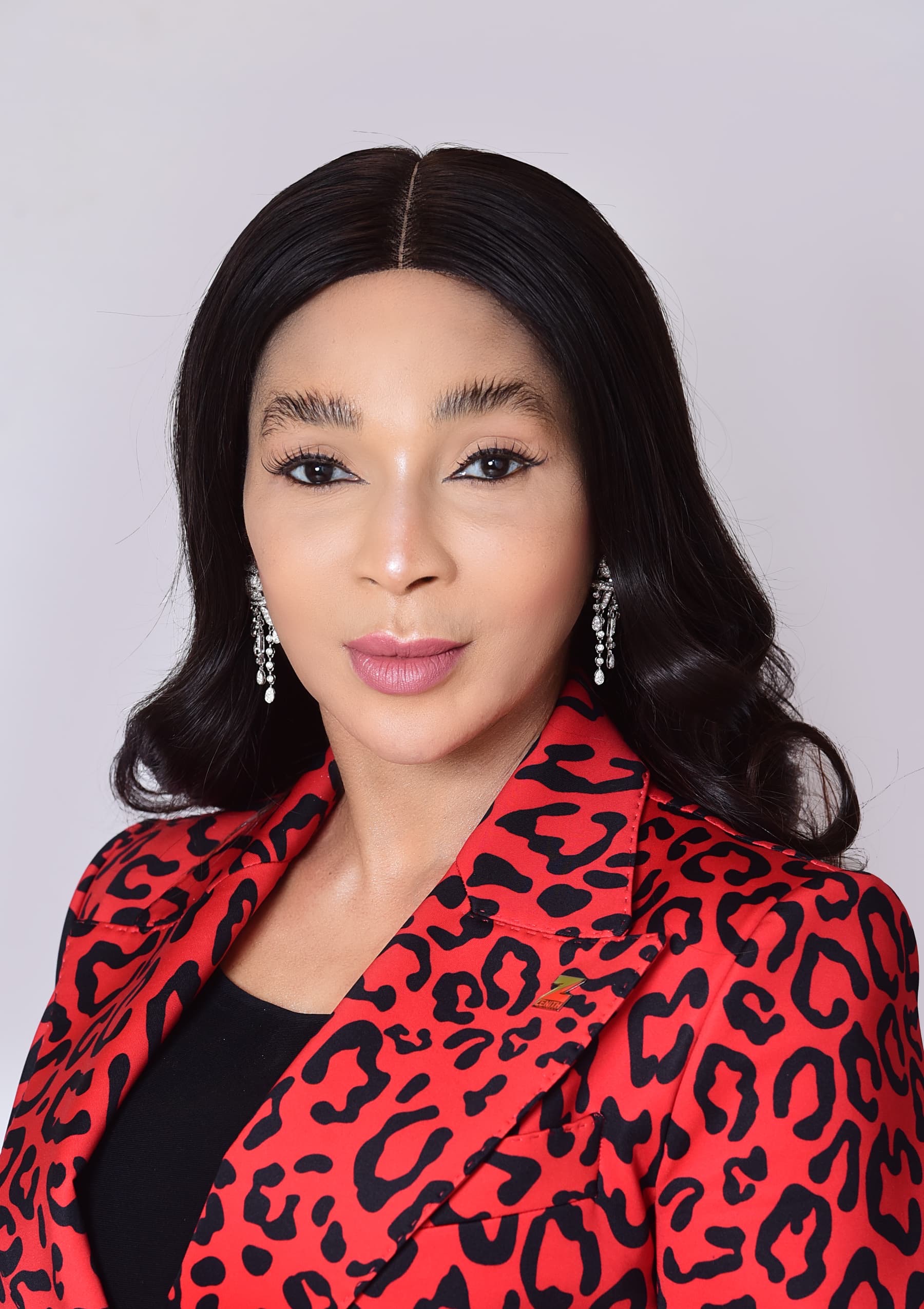
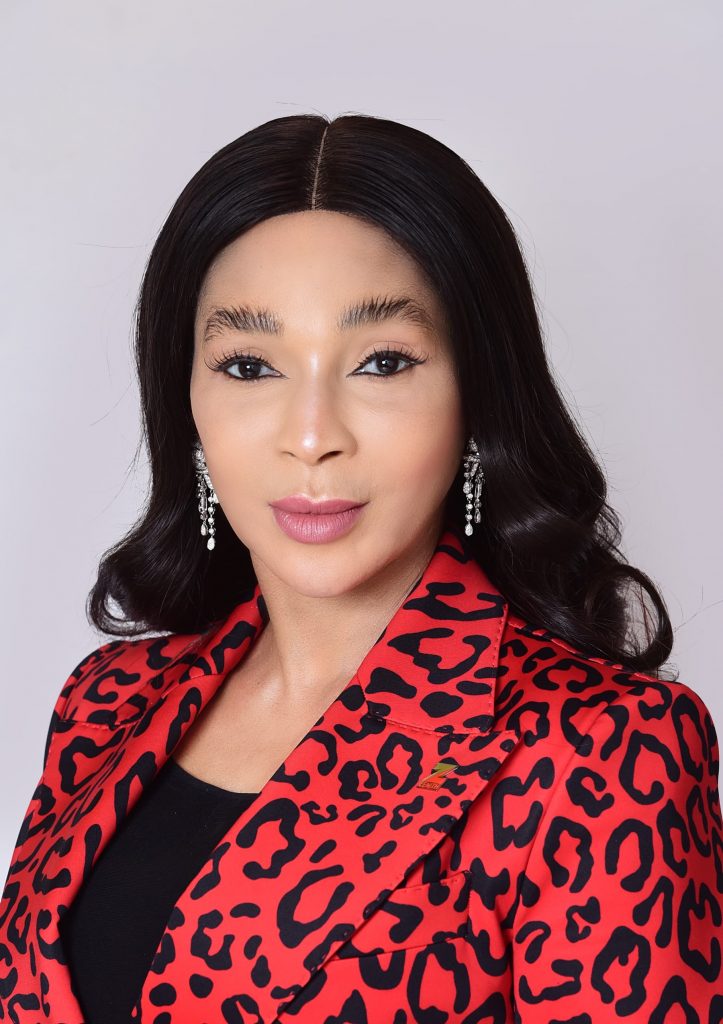
Zenith Bank Plc has released its unaudited financial results for the nine months ended 30 September 2025, with a remarkable 16% year-on-year growth in gross earnings from N2.9 trillion recorded in Q3 2024 to N3.4 trillion in Q3 2025. The Group’s performance continues to demonstrate resilience, strong momentum, disciplined execution and an ability to deliver long-term shareholder value in spite of challenging macroeconomic environment.According to the financial results presented to the Nigerian Exchange (NGX), the growth in gross earnings was driven by a sustained growth in interest income which grew by 41% year-on-year to N2.7 trillion. The growth in interest income was supported by a high-yield rate environment and an expansion in the Bank’s investment portfolio. Despite the increase in interest expense by 22% to N814 billion on the back of a tightening monetary cycle and a growth in the Bank’s funding base, the Bank was able to achieve a healthy Net Interest Margin (NIM) of 12% as against 10% in September 2024. Non-interest income declined by 38% to N535 billion, underpinned by a 60% decline in trading gains.Profitability remained strong, with profit before tax at N917 billion as against N1.00 trillion reported in September 2024. Profit after tax also declined by 8% to N764 billion and Earnings Per Share (EPS) came in at N18.60 as against N26.34 in September 2024, as the Bank took bold measures to improve the quality of its loan portfolio.The Bank’s total assets grew by 4% from N30 trillion in December 2024 to N31 trillion as at September 2025. This was largely supported by customer deposits, which rose by 8% to N23.7 trillion within the same period. Gross loans declined by 9% to N10 trillion as at September 2025, while Non-Performing Loan (NPL) ratio improved to 3% due to the write-off of non-performing loans.Return on Average Equity (ROAE) and Return on Average Assets (ROAA) stood at 23.3% and 3.3% respectively. Cost of funds increased to 4.5%, underscored by the broader elevated interest rate environment. The Group’s cost of risk stood at 10% while cost-to-income ratio rose to 45%.Coverage ratio and liquidity ratio remain solid and well within regulatory limits at 211.1% and 53% respectively. This highlights the Bank’s strong capital position and liquidity profile as well as its ability to fund strategic growth opportunities. It also reflects its unwavering commitment to a prudent risk management, compliance and corporate governance culture. Commenting on the results, the Group Managing Director/CEO, Dame Dr. Adaora Umeoji, OON, said: “the Bank’s robust performance is an attestation to the resilience of the Zenith brand, result-driven strategy, and the adaptability of our people in an evolving operating environment. We have fortified our capital base, reset our asset quality, and are well positioned for sustainable and profitable growth”.Looking to Q4 2025, Dame Dr. Umeoji reinforced her optimistic outlook: “This result confirms the resilience of both our business model and our people. We’re on a solid growth path that we expect to maintain through the remainder of the year. Our focus on innovation, digital transformation, and developing solutions that address our clients’ changing needs positions us to capitalise on emerging .
opportunities whilst maintaining our disciplined approach to growth.” She assured shareholders that the robust performance, combined with improved asset quality and the Bank’s strong capital base, positions Zenith Bank to deliver exceptional returns with expectations of sustained value creation. “We’re well placed to sustain this momentum whilst maintaining responsible leadership in the Nigerian banking industry and delivering exceptional value to all our stakeholders.”The Bank’s track record of excellent performance has continued to earn the brand numerous awards, including being recognised as the Number One Bank in Nigeria by Tier-1 Capital for the sixteenth consecutive year in the 2025 Top 1000 World Banks Ranking, published by The Banker and “Nigeria’s Best Bank” at the Euromoney Awards for Excellence 2025. The Bank was also awarded Bank of the Year (Nigeria) in The Banker’s Bank of the Year Awards for 2020, 2022 and 2024; Best Bank in Nigeria from 2020 to 2022, 2024 and 2025, in the Global Finance World’s Best Banks Awards; Best Bank for Digital Solutions in Nigeria in the Euromoney Awards 2023; and was listed in the World Finance Top 100 Global Companies in 2023.Further recognitions include Best Commercial Bank, Nigeria for five consecutive years from 2021 to 2025 in the World Finance Banking Awards and Most Sustainable Bank, Nigeria in the International Banker 2023 and 2024 Banking Awards. Additionally, Zenith Bank has been acknowledged as the Best Corporate Governance Bank, Nigeria, in the World Finance Corporate Governance Awards for four consecutive years from 2022 to 2025 and ‘Best in Corporate Governance’ Financial Services’ Africa for four consecutive years from 2020 to 2023 by the Ethical Boardroom.The Bank’s commitment to excellence led to Zenith being also being named the Most Valuable Banking Brand in Nigeria in The Banker’s Top 500 Banking Brands for 2020 and 2021, Bank of the Year 2023 to 2025 at the BusinessDay Banks and Other Financial Institutions (BAFI) Awards, and Retail Bank of the Year for three consecutive years from 2020 to 2022 and 2024 to 2025. The Bank also received the accolades of Best Commercial Bank, Nigeria and Best Innovation in Retail Banking, Nigeria, in the International Banker 2022 Banking Awards, Bank of the Year 2024 by ThisDay Newspaper; Bank of the Year 2024 by New Telegraph Newspaper; and Best in MSME Trade Finance, 2023 by Nairametrics. The Bank’s Hybrid Offer was also adjudged ‘Rights Issue/ Public Offer of the Year at the Nairametrics Capital Market Choice Awards 2025.Zenith Bank has also bagged several non-financial awards including, Most Responsible Organisation in Africa, Best Company in Transparency and Reporting and Best Company in Gender Equality and Women Empowerment at the SERAS CSR Awards Africa 2024.
brand
Guaranty Trust Holding Company Plc (“GTCO” or “the Group”) has released its Unaudited Consolidated and Separate Financial Statements as of September 30, 2025, to the Nigerian Exchange Group (NGX) and London Stock Exchange (LSE)
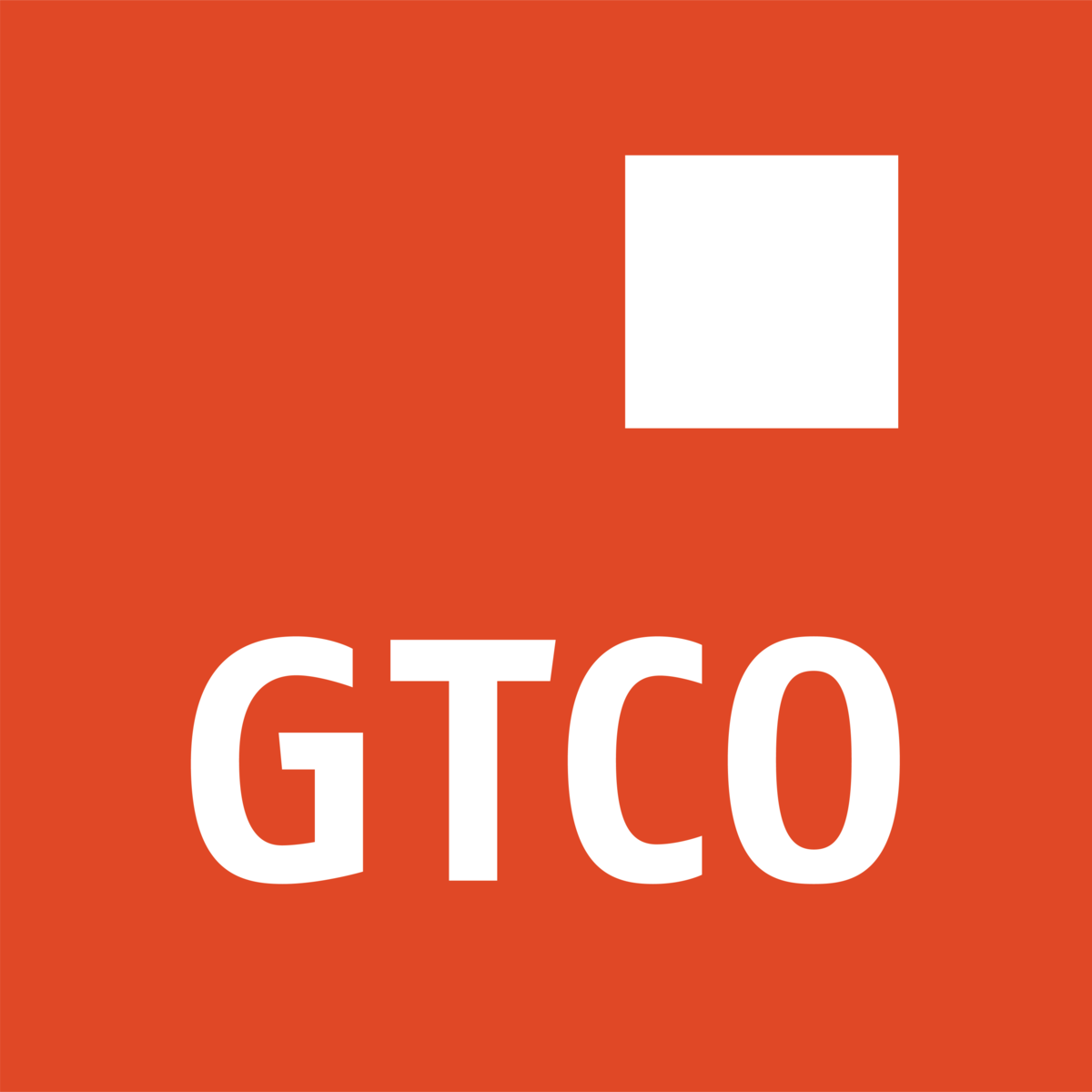
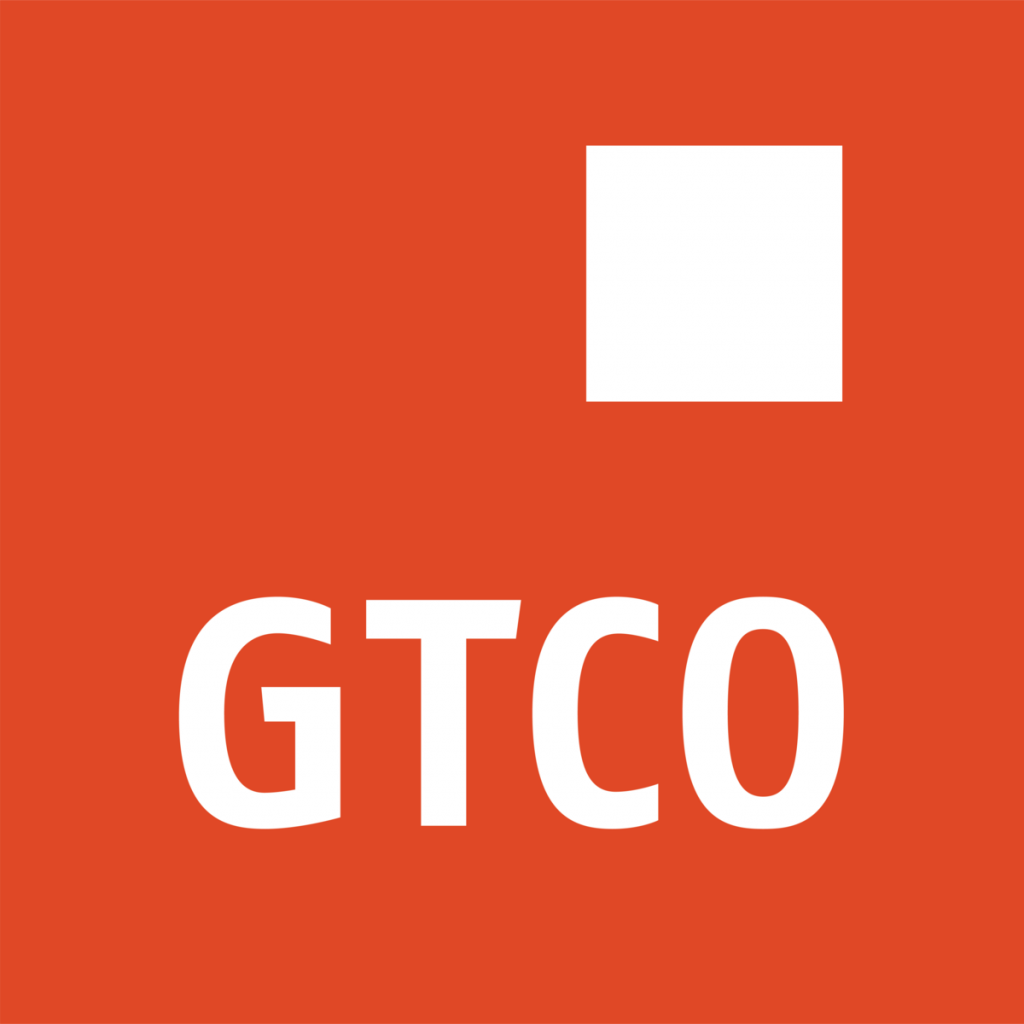
The Group posted profit before tax of ₦900.8billion on the back of strong performance on the core earnings lines of interest income and fee income which grew y-o-y by 25.6% and 16.8% respectively. The strong core-earning performance continued to narrow the y-o-y dip in PBT to 26%, thereby cushioning the impact of the ₦523.2bn fair value gains recognised in Q3-2024, which did not recur in Q3-2025.
The Group recorded growths across all its Asset lines and continues to maintain a well-structured, healthy liquid and diversified balance sheet in all the jurisdictions wherein it operates a Banking franchise, as well as across its Payments, Pension and Funds Management business verticals.
Group’s total assets and shareholders’ funds closed at ₦16.7trillion and ₦3.3trillion, respectively. Capital Adequacy Ratio (CAR) remained very robust and strong, closing at 36.5%, likewise asset quality improved as evidenced by IFRS 9 Stage 3 Loans which closed at 3.3% and 4.4% % at Bank and Group level in Q3-2025 (Bank 3.5%, Group 5.2% in December 2024). Cost of Risk (COR) also improved to 2.2% from 4.9% in December 2024. In specific terms, the Group’s loan book (net) grew by 16.5% from ₦2.79trillion as of December 2024 to ₦3.24trillion in September 2025. Similarly, deposit liabilities grew by 16.0% from ₦10.40trillion to ₦12.06trillion during the same period.
Commenting on the results, the Group Chief Executive Officer of Guaranty Trust Holding Company Plc, Mr. Segun Agbaje, said: “Our third quarter performance underscores the consistency and resilience of our business model, as well as the continued strength of our diversified financial services ecosystem. We are seeing steady, sustainable growth across our banking and non-banking businesses, supported by disciplined execution and a strong focus on operational efficiency. The improvements we have made to our digital and payments infrastructure are enhancing customer experience, deepening engagement, and driving greater integration across our ecosystem.”
He further stated: “Looking ahead, our focus remains on advancing our competitive edge through innovation, operational excellence, and a commitment to superior customer outcomes. With a clear growth trajectory and strong organizational alignment, we are well-positioned to sustain performance momentum and deliver another year of industry-leading results.”
Overall, the Group continues to post one of the best metrics in the Nigerian Financial Services Industry in terms of key financial ratios i.e., Pre-Tax Return on Equity (ROAE) of 39.5%, Pre-Tax Return on Assets (ROAA) of 7.6%, Capital Adequacy Ratio (CAR) of 36.5% and Cost to Income ratio of 28.8%.
Guaranty Trust Holding Company Plc is a leading financial services group with operations across Africa and the United Kingdom. Renowned for its strong corporate governance, innovative financial solutions, and customer-centric approach, GTCO Plc provides a wide range of banking and non-banking services including payments, funds management, and pension fund administration. The Group is committed to delivering long-term value to stakeholders while driving growth and development across its markets
brand
Access Holdings Reports 2.5 Trillion Gross Earnings in H1 2025
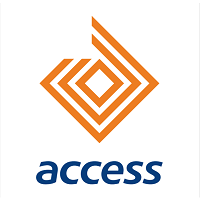
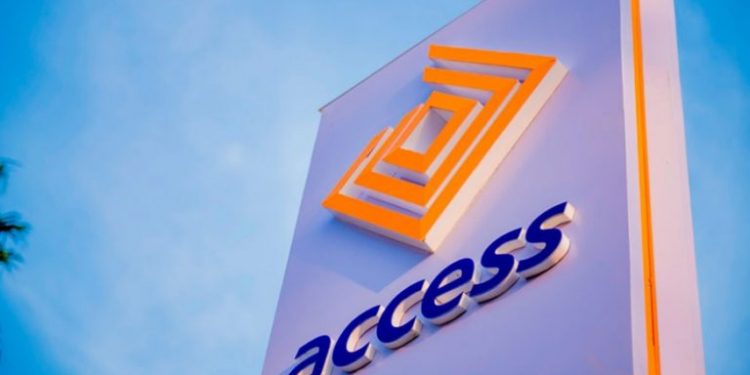
Access Holdings Plc (“the Group” or “the Company”) today announced its half-year audited financial results for the period ended June 30, 2025.The Group’s financial results for the half year ended June 30, 2025, reflect the resilience of our business model, the diversification of our revenue streams, and the steady progress to the execution of our five-year strategic plan. Gross earnings increased by 13.8% year-on-year to 2.5 trillion in H1 2025 from 2.2₦ ₦ trillion in H1 2024, driven by strong growth in interest income which increased by 38.9% year-on-year to 2.0 trillion from 1.5 billion in H1 2024. Net interest income also increased by 91.8% year-on-year to 984.6 billion in H1 2025 from 513.4 billion in H1 2024. Complementing this performance was a growth in net fees and commission income, which increased by 16.1% year-on-year to 237.7billion in H1 2025 from 204.7 billion in H1 2024. Profit before tax (PBT) and profit after tax (PAT) closed at 320.6 billion and 215.9 billion respectively underscoring the strength and resilience of our business model in the markets we operate in. Key balance sheet indicators remain strong with total assets, customer deposits, loans and advances, and shareholders’ equity closing at 42.4 trillion, 22.9 trillion, 13.2 trillion 3.8 trillion respectively. The Banking group demonstrated resilient performance in H1 2025. Interest income grew by 38.7% year-on-year to 2.0 trillion in H1 2025 from 1.5 trillion in H1 2024. Net interest income increased by 85%, from 536.7 billion in H1 2024 to 992.7 billion in H1 2025. Fee and commission income increased by 27% to 294.9 in H1 2025 from 232.5 billion in H1 2024 driven by increased transaction volumes. Profit before tax (PBT) and profit after tax (PAT) closed at 303.0 billion and 199.3 billion respectively. Banking group subsidiaries contributed 65% to the Banking group’s profit before tax (PBT) in H1 2025. This result highlights our journey towards sustainable performance and execution across our key African and international markets. The Group’s non-banking subsidiaries maintained a strong growth momentum. For Access – ARM Pensions, financial performance was robust, with revenue up 29.9% to 21.0 billion and profit before tax up 65.1% to 13.1 billion. The business delivered a₦ ₦
www.accessbankplc.com solid ROAE of 48.1%, a cost-to-income ratio of 35.1%, and a PBT margin of 62.5%, underscoring strong operational efficiency and profitability. Hydrogen Payments recorded a 40.5% growth in top-line revenue compared to H1 2024. Profit before tax (PBT) grew by 273% year-on-year. The total transaction value processed increased by 211%, reaching 41.1 trillion in H1 2025, up from 13.8 trillion in H1 2024. Access Insurance Brokers has sustained strong momentum, recording a 125% year-on-year increase in gross written premium, 146% growth in revenue, and a 161% improvement in profit before tax (PBT). Oxygen X, the Group’s digital lending arm, has sustained strong momentum since launch in Q3 2024, delivering 5.4 billion in revenue and 2.2 billion in profit before tax in H1 2025. Access Holdings’ businesses are well-positioned to deepen market penetration, expand product offerings, and leverage cross-sell opportunities across the Group to drive continued growth and profitability. The group’s focus remains on driving prudent growth and continued execution of its strategic priorities, scaling its digital and transaction-led income streams, increasing revenue diversification, embedding efficiency, innovation, and disciplined portfolio management across all areas of the business. It will also continue to uphold the highest standards of risk and governance discipline to ensure sustainable profitability.Access Holdings remains confident that it will continue to deliver sustainable value and returns to its shareholders. Its long-term objective is to build a stronger, more agile Group that consistently delivers superior returns, fosters innovation-driven growth, and optimises portfolio performance to create inclusive value across its markets while reaffirming investor confidence in the strength and future of Access Holdings. The Group appreciates the continued trust and support of its shareholders, customers, and employees. Together, the Group is building a stronger future.
-

 news5 years ago
news5 years agoUPDATE: #ENDSARS: CCTV footage of Lekki shootings intact – Says Sanwo – Olu
-

 lifestyle5 years ago
lifestyle5 years agoFormer Miss World: Mixed reactions trail Agbani Darego’s looks
-

 health5 years ago
health5 years agoChairman Agege LG, Ganiyu Egunjobi Receives Covid-19 Vaccines
-

 lifestyle4 years ago
lifestyle4 years agoObateru: Celebrating a Quintessential PR Man at 60
-

 health5 years ago
health5 years agoUPDATE : Nigeria Records 790 new cases of COVID-19
-

 health5 years ago
health5 years agoBREAKING: Nigeria confirms 663 new cases of COVID-19
-

 entertainment10 months ago
entertainment10 months agoAshny Set for Valentine Special and new Album ‘ Femme Fatale’
-

 news6 months ago
news6 months agoBREAKING: Tinubu swears in new NNPCL Board


